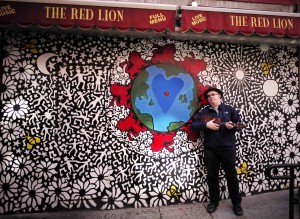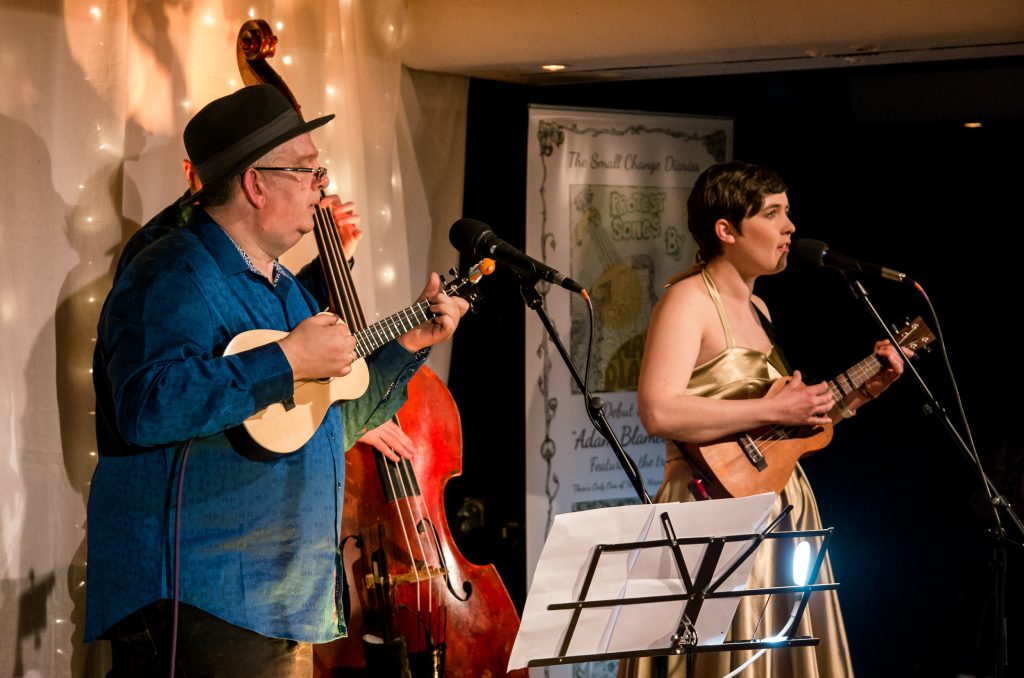What is a festival anyway?
A festival has been described as
“an organized series of concerts, plays, or films, typically one held annually in the same place.”
One of my earliest experiences of live gigs was bunking off school aged 13 to go and see the original line up of Gong playing Hyde Park with a number of other artists. This would not fit this classic description of “festival” but over the decades I have attended well known festivals like Womad and Pink pop in Holland. So a festival in the true sense is not a one off occurrence but has some history, is organized and is more than a single performance, which of course makes it very different to a gig. I mention this because in recent times concerts are described as “festivals”
I think it’s also useful to differentiate between these different forms of event both from the artists and the public’s perspectives, as from what I see there’s a lot of confusion about what a festival even is! This article is of course highly subjective based on my 45 years’ experience of attending a wide range of music events. Many reading this (especially promoters) may have different views and that of course is fine! The article also includes references to ukulele festivals, but looks at this subject from a wider perspective.
First, let’s start with a “Homer Simpson” question?
The first question to ask is “What’s the purpose of the festival?”
 There may of course be a number of purposes, but definition is key for a successful outcome. Often amazingly promoters often are somewhat fuzzy about this question! You can always spot an event that is not well thought through and/or designed by committee as there’s no clear vision! The problem with this is that usually the end result won’t be as impactful or memorable which means that there will be no longevity for such events. In 1980s for a while I was involved in running public events and each time it would require a fairly substantial commitment of cash before anything could be initiated! Anyone who thinks they will become rich running events, would be advised to think again. Like all successful business it takes a great deal of time, energy and skill. Most folks don’t have the stamina for such endeavors. The most successful festivals will capture the public’s imagination and will seek to be more than just a meeting place for the same recycled artists and ideas.
There may of course be a number of purposes, but definition is key for a successful outcome. Often amazingly promoters often are somewhat fuzzy about this question! You can always spot an event that is not well thought through and/or designed by committee as there’s no clear vision! The problem with this is that usually the end result won’t be as impactful or memorable which means that there will be no longevity for such events. In 1980s for a while I was involved in running public events and each time it would require a fairly substantial commitment of cash before anything could be initiated! Anyone who thinks they will become rich running events, would be advised to think again. Like all successful business it takes a great deal of time, energy and skill. Most folks don’t have the stamina for such endeavors. The most successful festivals will capture the public’s imagination and will seek to be more than just a meeting place for the same recycled artists and ideas.
Location, location, location…
Anyone running an event of any sort appreciates, that it’s a great deal of work. Customers only see the final result and would probably be amazed by the sheer amount of work that is needed to make such festivals happen. It seems to me that there is an abundance of festivals in recent times and inevitably not all of them will be financially viable as there are only so many people that will attend. The location of any festival is of course crucial as unless customers are local they have to travel and organize accommodation. If families are attending and the weather is not great, then can ruin the overall experience.
Many festivals are also run during the holiday period so festival attendees need to plan ahead or potentially find they have an issue. I saw one festival starting to market the following year’s proposed event a full year ahead and some folks commenting on social media that it was too far ahead for hotels to take bookings! Advertising a year ahead presents other problems, but I’ll get to that later…
The WIIFM factor?
The “What’s in it for me?” factor (WIIFM) is key to attracting and maintaining customers. I say “maintaining” because often promoters can generate short term attention but fail to maintain creating a successful annual event. When Peter Gabriel first promoted world music in the 1980s, many people thought “What the f**k is this?” Similarly, Womad was a bold initiative, BUT crucially DIFFERENT and of course any smart marketer appreciates that “difference dictates” in generating customer awareness. Often promoters become complacent and think that it’s just about booking one BIG ACT, which in my view is a simplistic view. Personally when I make decisions about which events to attend, I look at all manner of elements before making a final decision. I have noticed that the most successful festivals have a specific identity and loyal following that makes them rather special and of perennial interest
Pioneers in promoting festivals and promotion
Peter Gabriel’s Womad is a great example of a bold creative statement. I remember seeing Jah Wobble play in the 1980s at this festival. It was an excellent day with great cuisine, stores and terrific atmosphere. I regret not attending Glastonbury in 1970s and 1980s and of course Michael Eavis would be regarded as a pioneer, even if I did groan when I heard that the headliners this year are “Adele” and “Coldplay” hardly the cutting edge of creative entertainment in my opinion! Inevitably many folks will seek to copy such pioneers, BUT usually won’t succeed as they lack the creative skills and imagination to continue to develop and evolve events.
The timing of promotions for an event is crucial. If you leave marketing too late then there is a danger of missing the boat. If you promote way ahead, then as the old saying goes “You never get a second chance to make a first impression!” A lot happens throughout a year and crucially people’s attention will be focused on more than one festival weekend way off at a future date, especially with so much happening in a world where there is instant information available globally! Ultimately its more than simply booking acts, it’s about THE WHOLE EXPERIENCE, and that requires some smart thinking. Again I applaud anyone wanting to promote a festival but I really encourage folks to think about many of the points I have outlined and probably others I may have missed!
Attention to detail and making an impression
Any smart promoter appreciates the importance of attention to detail. This applies to everything from the official website, programmes, social media etc. In recent times I attended two ukulele festivals within a month. The first one had a 40+ page programme crammed with information, with excellent design and was available for all those who had bought tickets. The second have a fraction of pages, 50% were adverts! Both examples create an impression of course… The one with the expanded program had 3 main stages for artists playing over the whole weekend, the former had a fraction of the number of acts, all of who played on the first day. The rest of that weekend was essentially a cheery singalong which is fine, but not something I would personally pay to attend! This is of course highly subjective view and many folks will have a different opinion which is fine. A number of festivals in recent years realised a month before launch that they would lose a substantial amount of money and had to go back and beg artists to review arrangements. Another festival I came across was advertising “workshops” without any details 8 weeks before launch!
Trends in Festival popularity
 In 2013 there was a YouGov survey on music festival trends and this is what they concluded
In 2013 there was a YouGov survey on music festival trends and this is what they concluded
The report reveals that just under a fifth (19%) of UK festival-goers surveyed (i.e. those who have attended at least one music festival in the past) plan on going to a music festival in 2013, while 54% say they won’t be going at all in 2013. 37% of respondents say music festivals are over-crowded and involve too much queuing. Of those who do not plan to attend a festival in 2013, 35% say they are too expensive, 18% are put off by poor weather and muddy fields, and 22% say they plan to take a holiday instead of attending a music festival.
Of course it’s a few years on, but it is interesting to see what’s highlighted here. Many reporting online suggest that more niche festivals are the way forward and my gut instinct is that this may be correct!
Looking at current music festival attendance globally
It’s interesting to look at this from a global perspective to see what’s really drawing crowds! I don’t subscribe to big = best, but it does show what’s capturing pubic attention
Festival figures globally
Here are some interesting stats on festival figures globally
- 1) Electric Daisy Carnival, USA (Estimated 150,000 per day)
- 2) Glastonbury, England (Estimated 145,000 per day)
- 3) Roskilde, Denmark (Estimated 110,000 per day)
- 4) Rock Werchter, Belgium (Estimated 110,00 per day)
- 5) Rock al Parque, Columbia (Estimated 88,600 per day)
- 6) T In The Park, Scotland (Estimated 85,000 per day)
- 7) Exit, Serbia, (Estimated 75,000 per day)
- 8) Coachella, USA (Estimated 75,000 per day)
- 9) Reading/Leeds Festival, England (Estimated 75,000 per day)
- 10) Sziget, Hungary (Estimated 65,000 per day)
- 11) Pukkelpop, Belgium (Estimated 62,500 per day)
- 12) Pinkpop, Netherlands (Estimated 60,000 per day)
- 13) Big Day Out , Aus & New Zealand (Estimated 56,000 per day)
- 14) Burning Man, USA (Estimated 50,000 per day)
- 15) Bonnaroo, USA (Estimated 40,000 per day)
- 16) Fuji Rock, Japan (Estimated 40,000 per day)
- 17) Hurricane, Germany (Estimated 40,000 per day)
- 18) Download, UK (Estimated 37,000 per day)
- 19) Benicassim, Spain (Estimated 32,000 per day)
- 20) Wireless Festival, England (Estimated 15,000 – 20,000 per day)
Conclusion
Everyone will have their own preferences for what makes for a great music festival. Personally now I’m in my fifties, I don’t have the enthusiasm for standing in a field regardless of which act is playing. I’m more of a “Vanguard in NY” kind of guy! Ultimately the festivals that have a genuinely unique identity will be around for a long time. My hope is that regardless of my own personal bias, promoters will continue to innovate and be creative in how they organize and run such events rather than simply recycle what has gone before! I have the belief that the festivals that will prosper will be those that focus on developing what is new and of course that will include a lot of ORIGINAL music!

